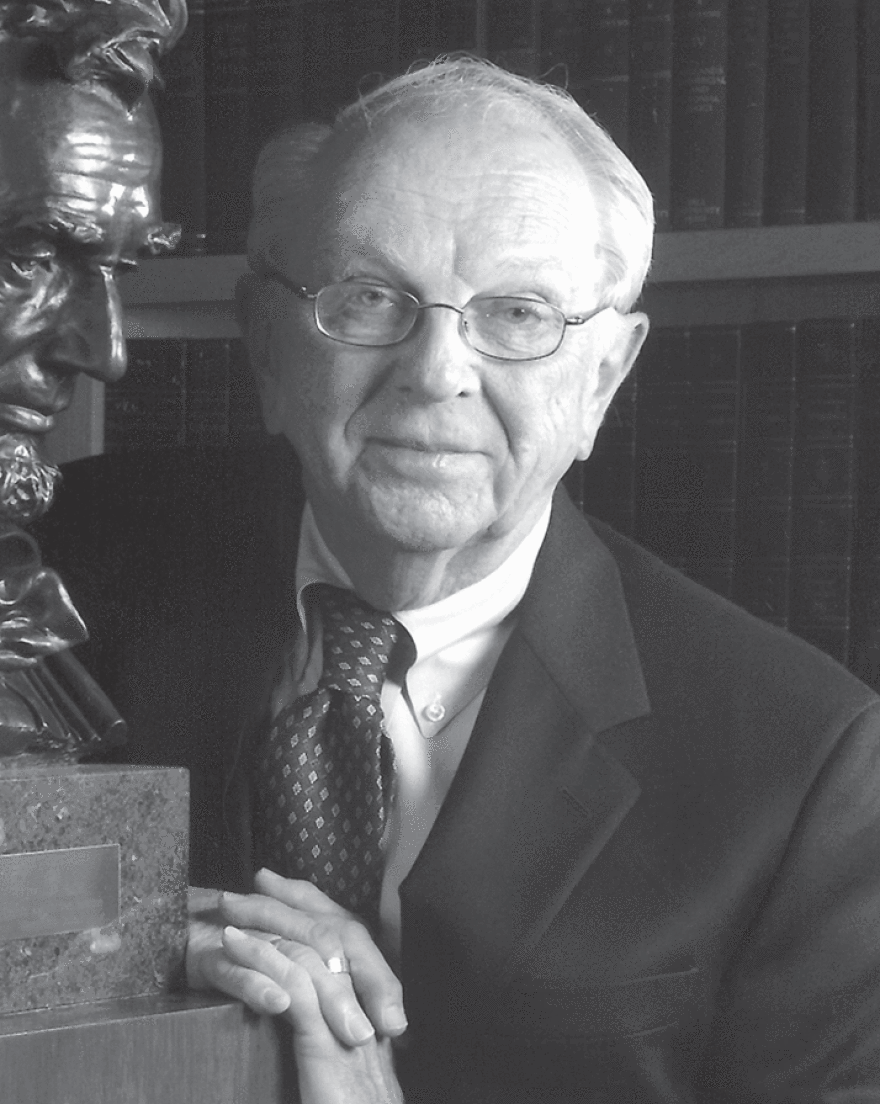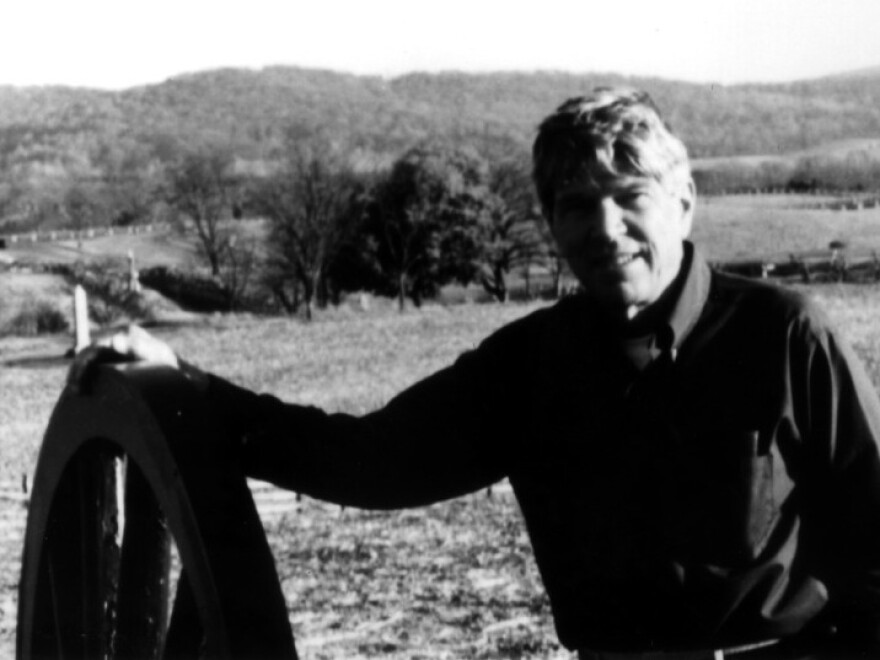In a 24-hour, Internet-fueled news cycle, political campaign reporters often seem to be focused on what just happened, and only what just happened. But presidential candidates profess to take a longer view: They consciously link their critiques and promises to the influential figures and debates of the past.
In a new series, Morning Edition will take a fresh look at American political history, beginning with the figure who loomed over the 2008 and 2012 campaign — that tall, well-spoken senator from Illinois, often hailed for his significance in the history of American race relations. No, not President Obama. We're talking about Abraham Lincoln.
President Obama and presidential hopefuls Newt Gingrich and Rick Santorum each have put forward their own narratives of the life of Lincoln, fine-tuned to their own political purposes. But their versions of Lincoln are just drops in a veritable ocean of books — — that assay Lincoln's legacy.
Where should a reader begin? Perhaps the most well-known biography is Lincoln, by the late historian David Herbert Donald. Eric Foner, a professor of history at Columbia University and author of The Fiery Trial: Abraham Lincoln and American Slavery, recommends Donald's book as the best one-volume account of Lincoln's life.
"[Donald] avoided the two pitfalls that people fall into. One is just hagiography — you know, [Lincoln] was born with a pen in his hand ready to sign the Emancipation Proclamation; and the other is the opposite, of course — [he was] just a racist or didn't really care about slavery at all. Donald sort of navigates between them," Foner says.

Foner notes, however, that the book is not without its flaws — notably that Donald's portrayal of Lincoln may have been influenced by current events in the mid-'90s, particularly by President Clinton.
"[Donald] sort of sees Lincoln as a person without any deep convictions," Foner says. "I think he sort of saw Lincoln as a Clinton figure — buffeted by events, not clear what he stood for. I don't think that's a very persuasive picture of Lincoln."
Doris Kearns Goodwin, presidential historian and author of Team of Rivals: The Political Genius of Abraham Lincoln, recommends a book that shows how Lincoln prevailed under pressure during the Civil War: Battle Cry of Freedom by James McPherson.
"He is such a narrative genius, McPherson ... what he's done is to mix together the battles, Lincoln's leadership, the home front, the finances, the Cabinet, all together, but it drives forward as a story, and you don't know until finally, perhaps, Atlanta, whether the North is really going to win this war," Goodwin says.
Lincoln's strategically brilliant decisions were gambles at the time, she says.
"We know the ending — we know that he was martyred, we know that the war was won. But the people living then certainly didn't know that, and I think that's what McPherson's pace allows us to see," Goodwin says.
But Lincoln's political persona is but one dimension of the man. Andy Ferguson, senior editor of The Weekly Standard and author of Land of Lincoln, recommends an out of print book, In the Footsteps of the Lincolns. The book's author, Ida Tarbell, the iconic muckraking journalist of the late 19th and early 20th centuries, exposes Lincoln's roots in the frontier culture of the Midwest.
Ferguson says Tarbell was obsessed with Lincoln throughout her life. "After World War I, she went and sort of fulfilled a part of her obsession that she had always wanted to, which was to retrace Lincoln's movements with his family since he was a little boy, from Kentucky to Indiana and into Illinois. And as she did this, there were still people alive who knew the Lincolns. It's a part of time that we can't really get access to any other way," Ferguson says.
In the days when Lincoln was growing up, Kentucky, Indiana and Illinois were remote areas struggling to develop. "It was just a couple of steps up from the Bronze Age, really," Ferguson says.
But rather than embracing his hardscrabble background, Foner says, Lincoln distanced himself from frontier culture.
"He doesn't like hunting, he's not a violent person, he doesn't hate Indians, he doesn't drink. And he understands very early — and where this comes from, who knows — that the way to get ahead is through your mind, not through just hard physical labor, which is what his father does. [Lincoln] gets as far away from the frontier as he can, pretty early," Foner says.
As often as political candidates today employ Lincoln's name for their own purposes, there are certain aspects to Lincoln that modern-day candidates won't adopt. For instance, Foner says he would love to see a political candidate of any party forthrightly say, "I have changed my mind," because that's what Lincoln did over and over again during the Civil War.

"Lincoln was a flip-flopper, if you want to use the terminology of modern politics. We don't seem to allow our politicians to do that anymore," Foner says.
Ferguson says that even when politicians do change their minds, political speechwriters are tasked with making it seem like the politician's views remained consistent.
Goodwin adds that she would like to see politicians emulate Lincoln's sense of humor. She tells a story about a time when Lincoln was accused of being two-faced, and he replied, "If I had two faces, do you think I'd be wearing this face?"
"That ability to laugh at yourself, to look at yourself from the outside in, means a certain kind of confidence — means taking the world seriously, but not taking yourself so seriously at every moment. It is in such short supply in our campaigns," Goodwin says.
Copyright 2023 NPR. To see more, visit https://www.npr.org.



